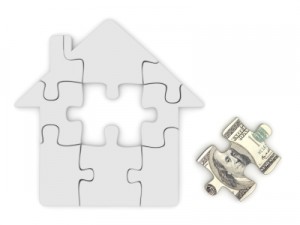
The New Fannie Mae Home Affordable Foreclosure Alternatives Program
The new HAFA program will go into effect on August 1, and could provide some relief for both homeowners and their real estate agents. This is not a program to keep homeowners in their homes, except possibly as renters. It’s designed to streamline short sales and deed in lieu procedures.
According to Fannie Mae’s Announcement SVC-2010-07 dated June 1, 2010:
“All servicers must implement Fannie Mae’s HAFA for all conventional mortgage loans that are held in Fannie Mae’s portfolio, that are part of an MBS pool that has the special servicing option, or that are part of a shared-risk MBS pool for which Fannie Mae markets acquired the property.”
They are “encouraged,” but not required, to use it for loans that don’t fit these guidelines.
This program is “designed to mitigate the impact of foreclosures on borrowers who are eligible for a loan modification under the Home Affordable Modification Program (HAMP), but ultimately were unsuccessful in obtaining one.”
Before you qualify for HAFA you must first attempt to use HAMP. Then if you’re unsuccessful in getting a loan modification, you can use the same financial and hardship information to apply for HAFA – eliminating re-evaluation.
The next point says: “Allows the borrower to receive pre-approved short sale terms prior to the property listing.” If that means the banks are required to provide the information, it’s a huge plus for real estate agents and consumers attempting to buy short sale
properties.
Of course, using this program will place an added burden on the listing agents and the servicers. The requirements are stringent. Here’s one of them:
- Obtain monthly geographical comparables from the listing agent to determine whether the local market conditions have changed;
Under HAFA borrowers will be fully released from future liability for the debt, eliminating the need for agents to negotiate this point for their sellers. It also prohibits the servicer from demanding forfeiture of the agent’s real estate commission as a condition of short sale approval.
Finally, both the servicers and the borrowers are given a financial incentive. Servicers will receive a $2,200 fee for a short sale, or a $1,500 fee for Deed in Lieu
Borrowers will receive $3,000 to assist with relocation expenses.
This program is not a free ride for homeowners who simply want to get out from under their mortgage debt. It is for those who actually cannot pay and who would otherwise go into foreclosure.
Servicers are required to consider whether the borrower has:
- the ability to continue making the mortgage payments
- substantial unencumbered assets or significant cash reserves equal to or exceeding three times the borrower’s total monthly mortgage payment (including tax and insurance payments) or $5,000, whichever is greater; or
- high surplus income
These transactions will, of course, be reported to the credit bureaus. So there is no “free ride” for credit scores, either.
The primary benefits for homeowners will the avoidance of a drawn-out foreclosure process and the $3,000 cash for moving expenses.
As for the taxpayers… Who is paying these incentives? The banks, or the treasury?
To read the complete 22 page announcement of the new HAFA program, go to https://www.efanniemae.com/sf/guides/ssg/annltrs/pdf/2010/svc1007.pdf
CreditScoreQuick.com




